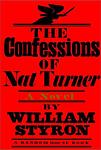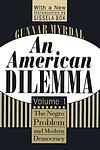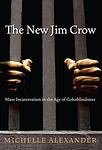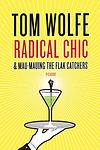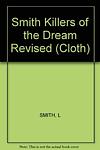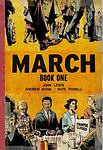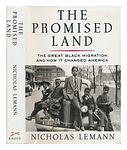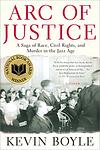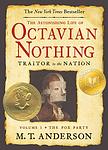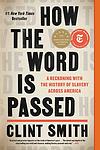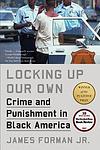The Greatest "American History, African American" Books of All Time
Click to learn how this list is calculated.
This list represents a comprehensive and trusted collection of the greatest books. Developed through a specialized algorithm, it brings together 300 'best of' book lists to form a definitive guide to the world's most acclaimed books. For those interested in how these books are chosen, additional details can be found on the rankings page.
Genres
The "American History" category encompasses a broad range of books that delve into the events, figures, and forces that have shaped the United States from its pre-colonial days to the present. This genre includes works on pivotal moments such as the American Revolution, Civil War, and civil rights movements, as well as studies of political, social, and cultural developments across various eras. It covers biographies of influential leaders, analyses of policy changes, and examinations of societal shifts. Whether providing comprehensive overviews or focusing on specific incidents or decades, books in the American History category aim to illuminate the complexities of the nation's past, offering readers insights into the events that have defined the American experience and the context for its ongoing evolution.
The category of "African American" books refers to literature written by authors of African descent who have lived or currently live in the United States. These books often explore themes of race, identity, and the African American experience, including topics such as slavery, civil rights, and contemporary issues facing the community. The genre includes a range of literary forms, including fiction, non-fiction, poetry, and memoirs, and offers a diverse and rich perspective on the African American experience.
Countries
Date Range
Reading Statistics
Click the button below to see how many of these books you've read!
Download
If you're interested in downloading this list as a CSV file for use in a spreadsheet application, you can easily do so by clicking the button below. Please note that to ensure a manageable file size and faster download, the CSV will include details for only the first 500 books.
Download-
1. The Souls of Black Folk by W. E. B. Du Bois
This seminal work is a collection of essays that explores the history and condition of African Americans at the turn of the 20th century. It delves into the issues of race, class, and the socio-economic realities faced by black people post-emancipation. The author employs a combination of history, sociology, and personal narrative to present a powerful critique of American society, highlighting the struggle for civil rights, the importance of black spirituals, and the concept of "double consciousness" - the idea of viewing oneself through the lens of a society that sees you as inferior.
-
2. Roots by Alex Haley
This groundbreaking historical novel follows several generations of an African American family, beginning with Kunta Kinte, a man captured in Gambia in the 18th century and sold into slavery in the United States. Through Kinte and his descendants, the narrative explores the brutal realities of slavery and its aftermath, the struggle for freedom and civil rights, and the perseverance of a family through immense hardship. The story is based on the author's own family history, making it a significant work in the exploration of African American heritage and identity.
-
3. The Confessions of Nat Turner by William Styron
"The Confessions of Nat Turner" is a fictionalized account of a historical event, the 1831 Virginia slave uprising led by Nat Turner. The book is presented as a first-person narrative from Turner's perspective, exploring his life as a slave, his religious visions, and the violent rebellion he led against white slaveholders. The novel delves into the complexities of slavery, morality, and rebellion, while also examining the psychological trauma inflicted by the institution of slavery.
-
4. Incidents in the Life of a Slave Girl by Harriet Jacobs
This book is a poignant autobiography that depicts the life of a young woman born into slavery in the southern United States in the early 19th century. The narrative provides a harrowing account of her childhood and adolescence, marked by abuse and exploitation. In her desperate quest for freedom, she spends seven years in a tiny attic, hiding from her oppressive master. The narrative serves as a powerful critique of the brutalities of slavery, and a testament to the author's indomitable spirit and pursuit of freedom.
-
5. The Fire Next Time by James Baldwin
This book is a powerful exploration of race relations in America in the early 1960s. The author presents his experiences and observations in the form of two essays. The first is a letter to his 14-year-old nephew, discussing the role of race in American history. The second essay takes a broader look at the civil rights movement and the author's own experiences with religion and identity. Throughout, the author presents a passionate plea for the recognition of the humanity and dignity of all people, regardless of race.
-
6. Up from Slavery by Booker T. Washington
The book is an autobiographical account of a former slave who rises to become a prominent educator and speaker. It chronicles his journey from enslavement during his childhood, through his struggles for education and his founding of Tuskegee Institute in Alabama. The narrative emphasizes the importance of education, hard work, and self-reliance as the keys to African American advancement, and provides a firsthand perspective on post-Civil War American South.
-
7. Why We Can't Wait by Martin Luther King
This book is a powerful exploration of the civil rights struggle in the United States in the early 1960s, as seen through the eyes of one of its most prominent figures. It provides a historical context for the push for racial equality, including the role of nonviolent protest in achieving social change. The book also includes a detailed account of the 1963 Birmingham campaign, a pivotal moment in the civil rights movement, and presents a compelling argument for the urgency of addressing racial injustice.
-
8. The Immortal Life of Henrietta Lacks by Rebecca Skloot
The book tells the story of Henrietta Lacks, a poor African American tobacco farmer whose cells, taken without her knowledge in 1951, became one of the most important tools in medicine, vital for developing the polio vaccine, cloning, gene mapping, and more. Henrietta's cells have been bought and sold by the billions, yet she remains virtually unknown, and her family can't afford health insurance. The book explores the collision between ethics, race, and medicine; of scientific discovery and faith healing; and of a daughter consumed with questions about the mother she never knew.
-
9. An American Dilemma by Gunnar Myrdal
This book is a comprehensive sociological study on the issues faced by African Americans in the United States during the mid-twentieth century. The author examines the deep-rooted racial discrimination and inequality prevalent in American society, exploring its origins, implications, and potential solutions. The work is notable for its detailed analysis and its impact on subsequent civil rights movements.
-
10. Roll, Jordan, Roll by Eugene Genovese
"Roll, Jordan, Roll" is a comprehensive exploration of slavery in the United States, specifically focusing on the complex relationships between slaves and their masters. The book examines how slaves managed to preserve their culture, humanity and dignity, while also highlighting the paradoxical nature of a system where slave owners were dependent on their slaves for their livelihoods. It delves into the ways in which slaves resisted their oppression, and the strategies they employed to survive and create their own communities within the confines of the brutal institution of slavery.
-
11. The New Jim Crow by Michelle Alexander
"The New Jim Crow" is a thought-provoking and eye-opening book that examines the deeply ingrained racial bias within the American criminal justice system. Drawing on extensive research and personal anecdotes, the author explores how the War on Drugs has disproportionately targeted and marginalized Black communities, leading to a modern-day system of racial control and oppression. This powerful critique challenges readers to confront the systemic racism that continues to perpetuate inequality and injustice in the United States.
-
12. Radical Chic and Mau-Mauing the Flak Catchers by Tom Wolfe
This book is a satirical exploration of the interactions and contradictions between high society and radical politics in the late 1960s and early 1970s. The first part of the book focuses on a fundraising party for the Black Panthers hosted by a wealthy New York couple, examining the complex mix of guilt, fascination, and patronizing attitudes among the elite guests. The second part of the book delves into the dynamics of racial tension and bureaucracy in San Francisco, revealing how marginalized groups learned to manipulate the system for their own benefit.
-
13. Dark symphony: Negro literature in America by James A. Emanuel (Comp), Theodore L. Gross
"Dark Symphony: Negro Literature in America" is a comprehensive anthology that explores the rich and varied African American literary tradition. Compiled by two renowned scholars, the book features a broad range of works including poetry, essays, short stories, and excerpts from novels, plays, and autobiographies. These works, which span several centuries, reflect the struggles, triumphs, and unique cultural experiences of African Americans throughout history. The anthology serves as an invaluable resource for understanding the depth and diversity of African American literature.
-
14. Parting the Waters by Taylor Branch
"Parting the Waters" is a comprehensive and engaging chronicle of the civil rights movement in America from 1954 to 1963. It offers an in-depth look into the lives of key figures such as Martin Luther King Jr., and their struggle to end racial segregation and discrimination. The narrative is filled with detailed accounts of major events from the Montgomery Bus Boycott to the March on Washington, providing a vivid picture of this pivotal era in U.S. history.
-
15. The Strange Career of Jim Crow by C. Vann Woodward
This historical analysis examines the history and development of racial segregation laws, known as "Jim Crow", in the United States. It explores the origins of these laws in the post-Civil War era, their enforcement in the South, and the eventual resistance and dismantling of them during the Civil Rights Movement. The book also challenges the perception that segregation was a natural outcome of racial tensions, instead arguing that it was a system carefully constructed by white elites to maintain economic and political control.
-
16. Killers of the Dream by Lillian Smith
"Killers of the Dream" is a non-fiction book that examines the roots of racism in the American South, particularly in the author's home state of Georgia. The author argues that segregation is not only harmful to black people, but also to whites, as it distorts their view of reality and their own humanity. The book explores the psychological, social, and cultural effects of racism, and calls for an end to racial discrimination and segregation.
-
17. March: Book One by John Lewis
"March: Book One" is a graphic novel that depicts the early life of a key figure in the American civil rights movement. Raised in rural Alabama, he grows up inspired by the activism surrounding the Montgomery Bus Boycott and the words of Martin Luther King Jr., which sets him on the path of nonviolent protest. The novel highlights his commitment to the fight for equal rights and his journey from a young boy on a farm to one of the key figures in the civil rights movement.
-
18. The Yellow House by Sarah M. Broom
"The Yellow House" is a memoir that tells the story of a hundred years of the author's family and their relationship to home in a neglected area of one of America's most mythologized cities, New Orleans. The narrative follows the author's journey from growing up in the titular house in New Orleans East, a largely ignored part of the city, to her pursuit of education and a career as a journalist, and her eventual return to New Orleans after Hurricane Katrina. The book explores themes of race, poverty, and inequity in America, while also being a deeply personal exploration of family, identity, and place.
-
19. The Promised Land: The Great Black Migration and How It Changed America by Nicholas Lemann
The book chronicles the epic relocation of African Americans from the rural South to the urban North of the United States between World War I and the 1970s. This transformative movement, known as the Great Migration, is examined through the lens of its profound impact on American society, politics, and culture. The narrative delves into the hopes, struggles, and aspirations of the migrants as they sought better opportunities and faced the challenges of racism, economic hardship, and cultural adaptation in their new communities. The author provides a comprehensive analysis of how this demographic shift reshaped the urban landscape, influenced the civil rights movement, and ultimately altered the fabric of the nation.
-
20. Arc of Justice by Kevin Boyle
"Arc of Justice" is a riveting and complex story that unfolds in the racially tense backdrop of 1920s Detroit. The narrative follows an African American physician who moves his family into a predominantly white neighborhood, resulting in a chain of violent events. The doctor stands trial for murder, and the case garners national attention. The book delves into the doctor's fight for justice and the broader societal implications of racial tension, prejudice, and civil rights in America.
-
21. The Astonishing Life of Octavian Nothing, Traitor to the Nation, Vol I and II by M.T. Anderson
The book follows the life of Octavian, a young African American boy raised in a strange and secretive environment in Revolutionary-era Boston. He is brought up as part of a philosophical experiment by a group of rationalist scholars who seek to determine the intellectual capacity of Africans. As he matures, Octavian realizes the true nature of the experiment and the oppressive reality of his existence. His journey of self-discovery leads him to question the very foundations of the society that treats him as an object of study rather than a human being. As the American Revolution unfolds around him, Octavian is drawn into the chaotic struggle for independence, identity, and survival, challenging the notions of freedom and what it means to be a traitor to a nation built on the paradox of liberty and slavery.
-
22. A Testament of Hope: The Essential Writings and Speeches of Martin Luther King, Jr. by Martin Luther King
This book is a comprehensive collection of the significant writings and speeches of a renowned civil rights leader. It includes his most influential and inspirational works, such as the "I Have a Dream" speech and the "Letter from Birmingham Jail", among many others. The book provides a deep insight into his thoughts, philosophies, and strategies for nonviolent protests, and his passionate advocacy for equality, justice, and dignity for all. It serves as a testament to his enduring hope for a more inclusive and equitable society.
-
23. Malcolm X: A Life of Reinvention by Manning Marable
This biography provides an in-depth exploration of Malcolm X's life, from his early days of crime and imprisonment to his transformation into one of the most influential African-American leaders. It delves into his complex relationships, his evolving political beliefs, and his controversial views on race and religion. The book also examines his assassination, shedding new light on the circumstances around his death and the conspiracy theories that followed.
-
24. How The Word Is Passed: A Reckoning With The History Of Slavery Across America by Clint Smith
"How The Word Is Passed" is a powerful and thought-provoking exploration of the legacy of slavery in America. Through a series of vivid and evocative essays, author Clint Smith takes readers on a journey across the United States, visiting sites that are deeply connected to the history of slavery and its aftermath. From Monticello to Angola Prison, Smith offers a nuanced and insightful look at the ways in which slavery has shaped our country and continues to impact our lives today. With a clear-eyed and compassionate approach, "How The Word Is Passed" is a must-read for anyone interested in understanding the complex and ongoing legacy of slavery in America.
-
25. Locking Up Our Own: Crime and Punishment in Black America by James Forman
This book delves into the complex and controversial issue of mass incarceration in the United States, particularly within the African American community. It explores the historical, social, and political factors that contributed to the high rates of black imprisonment. The author examines the role of African American leaders in advocating for tough-on-crime policies and their unintended consequences. The book is a thought-provoking analysis of the intersection of race, crime, and justice in America.
Reading Statistics
Click the button below to see how many of these books you've read!
Download
If you're interested in downloading this list as a CSV file for use in a spreadsheet application, you can easily do so by clicking the button below. Please note that to ensure a manageable file size and faster download, the CSV will include details for only the first 500 books.
Download

